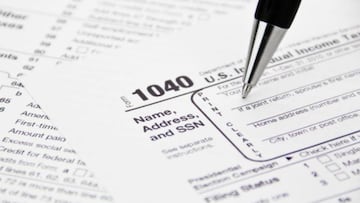Can you still file taxes if you had no income last year?
Even those without an income may be eligible for certain tax credits and benefits.

Paying taxes is mandatory, but what happens if you don’t have an income to report to the IRS? Even in this situation, you shouldn’t neglect to submit a tax return because you may be eligible to claim tax credits that will land you a refund even if your tax bill is $0.
Is it still necessary to file a tax return even if I don’t have a salary or income?
If you did not earn any income during the previous tax year, you are not required to file a tax return. The minimum income threshold for filing a tax return is adjusted annually by the Internal Revenue Service (IRS) based on various factors such as inflation and your individual tax situation.
This year, individuals under 65 making over $14,600 must submit a tax return. For those 65 and older, that threshold increases to $16,550.
For all other filing statuses, a return is required if one files as:
Under 65 at the end of 2024
- Single: $14,600 or more
- Head of household: $21,900 or more
- Married filing jointly (both spouses under 65): $29,200
- Married filing jointly (one spouse under 65): $30,750
- Married filing separately (any age): $5
- Qualifying surviving spouse: $29,200
65 or older at the end of 2024
- Single: $16,550 or more
- Head of household: $23,850 or more
- Married filing separately: $5 or more
- Married filing jointly (both spouses): $32,300
- Married filing jointly (one spouse under 65): $30,750
- Qualifying surviving spouse: $30,750.
Source: IRS
Benefits of filing a tax return even without an income
Different filing statuses such as “married filing separately,” “married filing jointly,” “no dependents,” and “other” can impact your eligibility for certain benefits and exemptions. Although filing a tax return is not mandatory if your income is zero, there are some compelling reasons to do so. For instance, there are refundable tax credits available, which means that even if you had no income last year, you may still get a refund. This is particularly relevant for those who are currently unemployed. Additionally, if you have children, you could qualify for tax breaks like the Earned Income Tax Credit and the Child Tax Credit. Both of these credits may be refunded if you paid more taxes than you owed.
You may still file even if you had a very low salary last year
If you have worked for a short time in the past calendar year or are a student with a low salary, you might be eligible for a refund of your back taxes. Students should be aware that if they are claimed as dependents on their parent or guardian’s tax return, they may not be eligible to receive certain rebates, credits, or other benefits. One of these credits is the Earned Income Tax Credit, with amounts varying according to income.
Looking forward to your federal tax refund? If you claimed the Earned Income Tax Credit, #EITC refunds should be available in bank accounts or on debit cards by today, March 3, if you chose direct deposit and there are no other issues with the return: https://t.co/KvzBKRpdwy #IRS
— IRSnews (@IRSnews) March 3, 2025
Related stories

When is the next holiday in the USA?
Self-employed individuals and company owners face unique challenges when it comes to taxes. Make sure to check with your accountant or tax advisor for guidance.
If you received any healthcare tax credits or subsidies during the previous year, you must file your taxes. This will allow you to continue receiving them.

Complete your personal details to comment